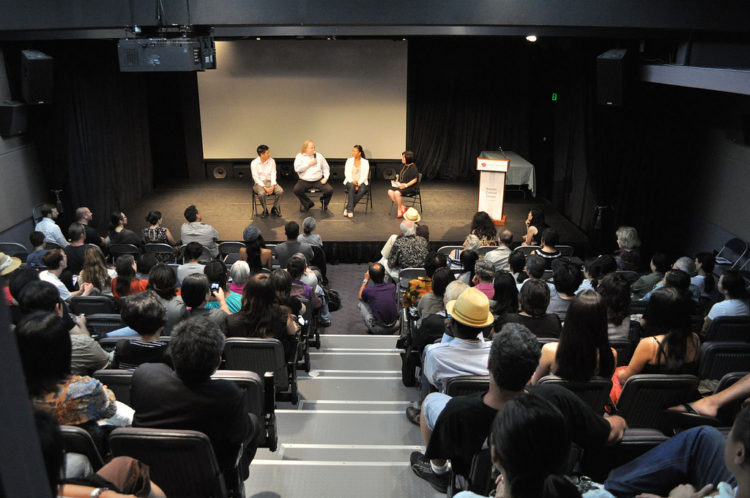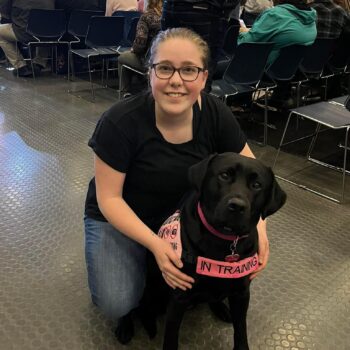Tired of your present job? Sick of waking up in the morning and going to the same place and seeing the same sights? Ever tried living in another country? Well why not try teaching abroad!? More specifically, teaching English in South Korea? Here, I will break down step by step the how to’s of how to undergo the process.
Step 1: Recruiting. KorVia. KorVia is a Korean recruiting agency, they help hire foreigners from Native English speaking countries to work in Korea. They will help with your entire application and documenting process as well as finding a good company to work under. I highly recommend going through them, otherwise, you will have to do the entire documentation process on your own.
Step 2: A Company to Fund you. Find a company either on your own or with KorVia. There are multiple companies that help foreigners find a job and a home. The biggest and most well known is EPIK (English Program in Korea) SMOE (Seoul Metropolitan Office of Education), GEPIK (Gyeonggi-Do English Program in Korea), and GOE (Gyeongnam Office of Education).
Part A: What do these companies do? What are their differences? Well first off EPIK helps foreigners find a school to work in and a place to live either in the “MOE” (Metropolitan Office of Education” or “POE” (Province Office of Education), since Korea has 9 provinces and 9 major cities their schools run based off where they are located all over the nation. SMOE will help place you in places around Seoul specifically while GEPIK will place you in the Province of Gyeonggi-Do and GOE will place you in Gyeongnam.
Part B: Extension of Part A. Once a company hires you through KorVia (or on your own accord) they will place you in either a MOE or POE, one they have decided that they will find you a school to work at. Once a school hires you (which they have to the company has partnership with them. In which they have partnerships with 80% of schools across the nation) they will find you a rent free, fully furnished apartment located within 5 minute walking distance from the school you work with. Even though the companies technically hire you, the school you actually work at will be the one paying you and finding a place for you to live as well as paying off your rent and/or key money for you.
Key Money?: Key money is a down payment that native Korean people pay whenever they rent an apartment or house. This down payment pays for the first year a person live in the apartment or house and this money basically covers any damages that happens to the place while they live there. People do eventually get this money back when they move as long as they took care of the apartment and there are little damages. This key money usually ranges from $10,000+. No cheaper than $10,000 though. On top of this you usually pay the key money and rent monthly. As a foreign English teacher however, your school pays this for you.
Step 3: Eligibility. In order to be eligible to work in Korea as an English teacher you must be from a native English speaking country such as the US, Canada, United Kingdom, Republic of Ireland, South Africa (the country), Australia, and New Zealand. You should at least have a College Bachelors Degree in any field, however, if you do not have an Education degree you will have to take a mandatory TEFL/TESOL/CELTA course. If you have a Bachelors degree in Education or have taken 1 year of TaLK (another company for colleges and university teachers) experience you do not have to take these courses. You must have a clean record, no criminal record or offenses, a nation wide criminal background check is mandatory in the application process. You must be mentally and physically healthy and under the age of 62!
Step 4: Application Documents. Applicants must apply and submit a fully competed Microsoft Word version of the EPIK Application form to their recruiter (usually you have to fill out an EPIK application form before you fill out the application for your preferred company. This is because all the other companies are actually just smaller branches of EPIK). Applicants are also required to create an original sample lesson plan that includes materials such as slideshows, worksheets, or other activities. A personal essay of 500-800 words must also be submitted, this essay should explain why you want to teach in Korea as well as your own educational philosophy and how people should deal with encountering cultural differences! If you look on the EPIK, SMOE, or even KorVia websites, you can find guides for lesson plan and essay.
An applicant photo is mandatory with an official passport size of 25×35 mm and you must be in front with a completely white backdrop. Two letters of recommendation (scanned files) from a previous or current teacher or employer. All your documents should have a digital copy and physical copy.
Extra note: At some point in your application process you will clarify what kind of school you would like to work for such as public or private. This choice is completely yours to have, the company must oblige this.
Step 5: Final Documents. EPIK (and/or other company) application form (printed). An Apostilled Photocopy of 3-4 Bachelor’s Degree. National level criminal background check Apostilled. Two sets of sealed university transcripts. Photocopy of TEFL/TESOL/CELTA certificate. Original two letters of recommendation. Two passport sized photos, one attached to your application the other for backup purposes. Photocopy of passport information page. Your contracts for your company, school, and housing. Smoking Sworn Declaration, smokers and nonsmokers must sign this document stating they will not smoke on school or around school campus.
Step 6: Additional Documents. These are just extra documents that you may or may not have to sign depending on your situation and stuff.
Step 7: Timeline Process. Apply through KorVia. Submit your EPIK (and other company) attachments and documents. Your interview. You will have a mandatory interview through Skype with EPIK, even if you’re going under SMOE, GEPIK, or GOE as I stated earlier they are all branches of EPIK so all your applications and interviews will be through EPIK directly and then passed onto your selected branch. Submit you EPIK (+SMOE/GEPIK/GOE) final documents. Placement: Placements are first come first serve basis. Example: You applied to live and work in Bucheon under EPIK, well say you were the 10th person to apply, there’s a very good chance you may or may not get to live and work in Bucheon. Apply for your Visa (E-2 I believe) with NOA, after your placement is confirmed they will send you a NOA (Notification of Appointment number) that you must take to the nearest Korean consulate in your country to apply for a Korean teaching visa. Book a one way flight to Korea (your flight is paid for by your school or company). Once you get to Korea you have a mandatory 9 day EPIK orientation which will educate you in the basics of living and adapting to the country.
Step 8: After the orientation your co-teacher (or someone of the equivalent) will take you to your apartment and go over your housing contract with you.
Step 9: Benefits. You will get your own rent free fully furnished apartment, although if you are under SMOE there is a chance you might work for a school that possibly won’t be able to provide full housing like this, but they will give you a 500,000 Won ($406.35) stipend every month until you are able to afford your home, this unfortunately does not include the key money. Basically, you’ll still get an apartment but you’ll have to use the stipend to pay for things your school couldn’t afford such as the rent, key money, maybe extra appliances. Once you have paid off the key money and whatnot, you’ll no longer need your stipend pay. You will get an entrance and a settlement allowance which is a one time payment your school is required to give you for the very first month you come to Korea, how much you get will depend on the company your work under.
For example if you work under SMOE you will get an entrance allowance of 1,300,000 Won ($1,057). Settlement allowance is 300,000 Won ($243.81).
Extra note, your contract is for a full year (March-January). If you decide to renew your contract for another year with the same school you’ll be given a 2,000,000 Won 9 ($1,625) renewal allowance. You will also receive Severance Payment which is a bonus salary as reward for completing your contract. When you’re ready to go home you’ll receive Exit Allowance of 1,300,000 Won ($1,057) and your ticket home will be paid for you. On top of this you will get 21 days paid vacation and 11 sick days. Your employer will also pay 50% of your medical insurance.
Step 10: Salary Levels. If you have a Bachelor’s degree at any level you will receive 1.8 million Won ($1,463) a month. Most companies prefer you to have a least a level 2 grade pay scale which is 2.0 Million Won ($1,628) a month, which you can receive by having a Bachelor’s degree in education (any education) and a few other ways. The highest level you can achieve is level S pay grade which is 3.0 Million Won ($2,441) a month. You can achieve this by having a Masters degree in English Education with 7+ years of full time English teaching experience along with a few other requirements.
So that’s it for my step by step guide to teach English in South Korea! For for information go to: http://www.korvia.com/.
Works Cited:
“EPIK (English Program In Korea).” EPIK (English Program In Korea). Korean Ministry of Education, 2006 Jan. 6. Web. 23 Feb. 2016.
Tesol, Brett. “Teaching English in South Korea (EPIK) – The Korean Package: Go and Earn Millions of KR Won! (Thousands of USDs).” HubPages. 28 Aug. 2014. Web. 23 Feb. 2016.
“Teach English in Korea – EPIK GEPIK SMOE GOE.” Teach English in Korea Korvia Consulting. Korean, 27 Sept. 2008. Web. 23 Feb. 2016.











